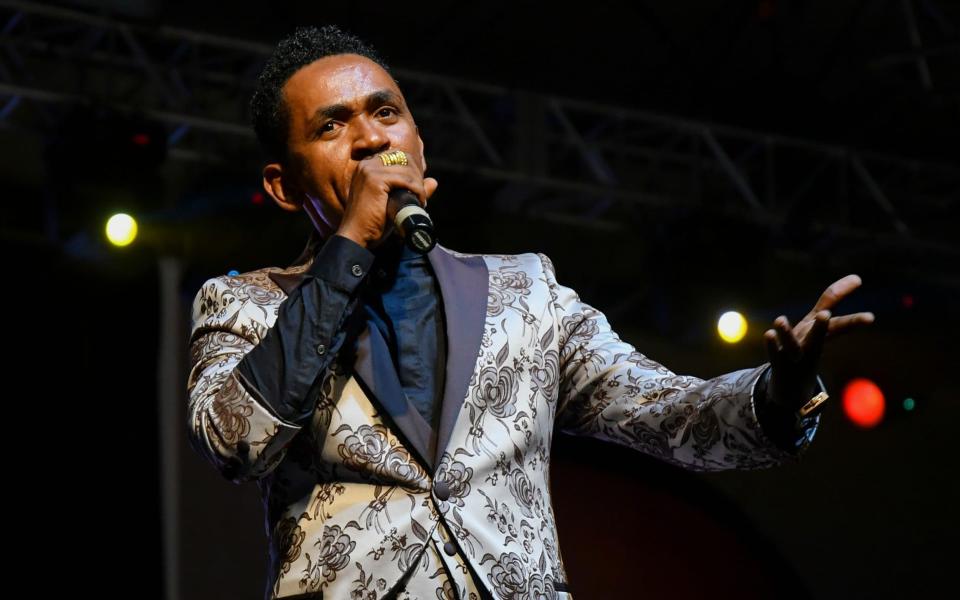Mass arrest of dissidents threatens to derail Nobel Peace Prize-winning PM's reform

He was hailed as Ethiopia's 'saviour' for bringing peace to the Horn of Africa, picking up the Nobel Peace Prize for his efforts.
But Abiy Ahmed, the country's liberal prime minister and the continent's youngest leader, is at risk of losing his shine with a brutal crackdown on dissent.
Opposition and critics of the 43-year-old leader have been rounded up and imprisoned.

Rights groups are warning that the dream of a liberal Ethiopia is quickly evaporating.
For much of its history, Ethiopia has been ruled by dictatorial, centralised governments which have kept the landlocked East African nation one of the poorest on earth.
In 2018, Prime Minister Abiy Ahmed was appointed and introduced a series of spectacular liberalising reforms. The government freed thousands of political prisoners and urged exiled activists and journalists to return home.
Abiy talked about opening up the country’s economy and made plans for free and fair elections. Then in 2019, Abiy won the Nobel peace prize for ending two decades of conflict with Eritrea, which had left around 80,000 people dead.
However, despite rapid liberal reforms, Ethiopia’s government is struggling to contain a series of ethnic horrific clashes, which are destabilising large parts of the country.
Over the last few years, there have been alarming reports of abuses by state security forces in Ethiopia’s Oromia region. This has fuelled resentment towards Abiy’s administration among the Oromo, the country’s largest ethnic group.
Ethiopian forces have been fighting a bloody counterinsurgency campaign against armed Oromo Liberation Army rebels in the west of the country since early 2019.
Ethiopian security forces out of carrying out “horrendous human rights violations” in the region including burning homes to the ground, extrajudicial killings and raping civilians suspected of supporting the rebels, according to Amnesty International.

On June 29, the mounting tension came to a head when Hachalu Hundessa, a famous singer and rights activist for the Oromo, was shot dead in Addis Ababa, the capital.
The singer’s murder was followed by weeks of protests, lawlessness and looting in the capital and across the Oromia region. Armed gangs roamed towns, brutally killing people with clubs and machetes and burning homes and businesses to the ground.
The army cracked down ruthlessly and the ensuing violence left 239 people dead, according to the government.“Soldiers shot my brother unprovoked,” said Gemechu*, who says he fled the army’s advance. “I couldn’t even stay in town to bury him.”
At least 7,000 people have been arrested, with many high profile critics of Abiy among those rounded up and put in prison.
Among those arrested were Jawar Mohammed and Bekele Gerba, both members of the opposition Oromo Federalist Congress party and arguably two of the most influential of dissident voices in the country.
“The prosecution is alleging that they were behind the unrest and also involved in a failed plot to assassinate government officials,” their lawyer Tuli Bayissa told The Telegraph.
Dejene Tafa, a member of the Oromo Liberation Front party, was taken from a prison cell to a hospital after displaying flu-like symptoms. “The facility he was being held at had a Covid-19 outbreak. We fear he may have contracted it,” said Tuli Bayissa.
Eskinder Nega, a press freedom advocate and politician, was also rounded up for allegedly stoking tensions. His lawyer said that Eskinder had suffered beatings in prison.
The arrests of prominent Oromo personalities, has put Abiy increasingly at odds with the Oromo, who initially formed the bulk of Abiy’s support base.
The arrests have prompted fears that the Nobel Peace Prize Winner may not be committed to the democratic reforms he has promised in the past.
“In a country with a very recent history of pumped-up charges against dissidents, the current administration needs to show that they are committed to ensuring credible justice and are tolerant of criticism by political opponents,” said Laetitia Bader from Human Rights Watch.

For its part, the government insists it is merely enforcing the law. “To engage in criminal activities and hide behind the curtain of being ‘government critics’ is not only an erroneous narrative but a threat to the duties of government in maintaining the rule of law,” said Billene Seyoum, Press Secretary at the Prime Minister’s office.
*Gemechu’s name has been changed to protect his identity.


